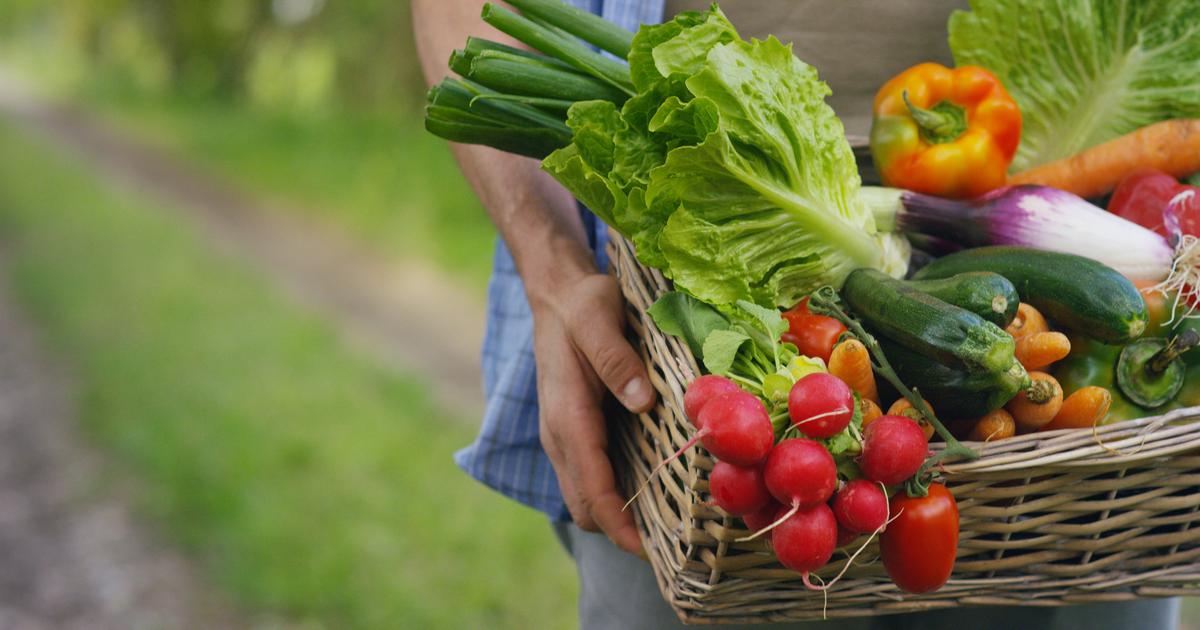More fruits and vegetables on our plates?
In any case, this is the wish of 64% of Europeans who plan to turn
“towards an increasingly plant-based diet, with more fruits, vegetables and cereals”
, notes a Bona Fidé study for Interfel.
“This demand is mainly driven by young people and women, respectively at 72 and 70%
,” explains Samuel Jequier, president of the Bona Fidé Institute.
In France, this desire has even increased by seven points - today at 59% - compared to the 2022 Interfel/Ifop survey.
If Europeans wish to increase their consumption of fruits and vegetables, some are still far from meeting the daily recommendation recommended by the WHO, which is 400 grams per day per person.
The French consume on average 321 grams per day, far behind the Greeks, at 472 grams per day, or the Belgians who eat 460 grams, according to Interfel.
Among the most popular products on the continent are apples and pears, which represent a consumption of 18.4 kg per year per person.
Next come citrus fruits, at 15.9 kg per year per inhabitant, or even tomatoes, at 11.8 kg per year per person.
The most consumed fruits and vegetables in Europe.
Interfel
Read alsoPesticides in fruits and vegetables: “eternal pollutants” ever more present in Europe
Remove taxes on fruits and vegetables
Despite the desire of Europeans to increase their consumption of fruits and vegetables, there remains a major obstacle: the price.
With inflation up 3.1% year-on-year in January in France, food weighs increasingly heavily in the consumer basket, at 5.7% year-on-year, according to INSEE.
For 65% of French people, price is the main obstacle, compared to 49% of Dutch people.
Some have been forced to reduce their consumption of fruit and vegetables in recent months, for 53% of French people, 47% of Italians and 42% of Spaniards.
“This leads to adaptation strategies: you skip meals, you eat lighter or you buy cheaper products, like canned goods
,” notes Samuel Jequier.
For the specialist, fruits and vegetables are
“today no longer necessarily accessible five times a day”
, as recommended by the WHO.
To boost sales in the sector, 87% of Europeans
“are in favor of eliminating taxes on fruit and vegetables”
.
If this measure was already implemented last year in Spain, it seems effective:
“70% of Spanish respondents believe that the removal of taxes on fruit and vegetables has enabled them to buy more or as much as before .”
To improve their purchasing power, consumers also offer another solution.
“75% of Europeans are in favor of setting up a fruit and vegetable check for the poorest households
,” underlines the study.
A proposal already put forward in 2022 by the Rural Families association
“so as not to divert families with the most modest budgets from these foods that are good for health”
.
She believes that investing
“in a nutritional program combining prevention and help for the most vulnerable is the key to curbing the development of too many pathologies linked to the consumption of products that are too fatty, too sweet, too salty in too large quantities”
.
A request that has so far remained a dead letter on the government's side.

